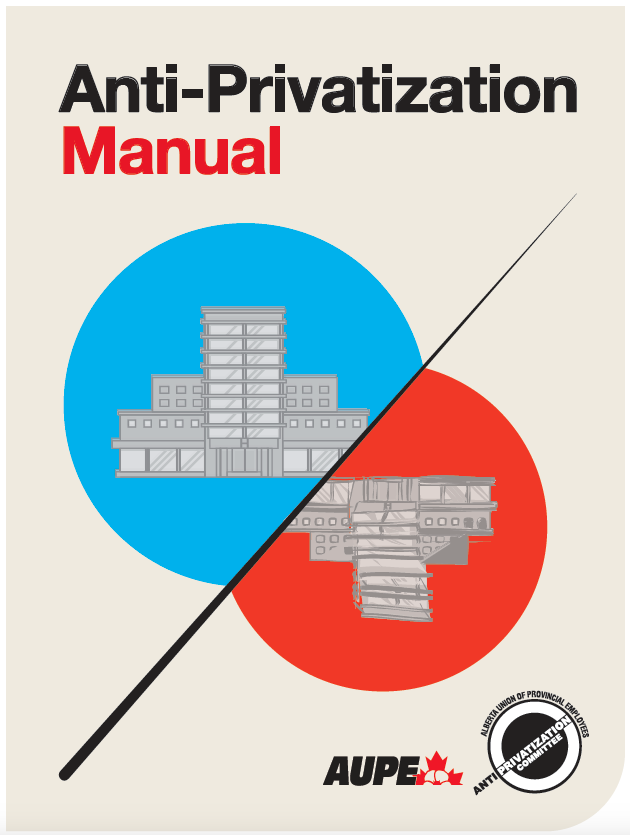Anti-privatization reporting form
PLEASE NOTE: the reporting form is not monitored by member services officers. If you have an issue with contracting out or privatization that is imminently impacting your job, call the Member Resource Centre at 1-800-232-7284 and ask to speak to a MSO
Fill out our anti-privatization reporting form below to report any rumours, notices, and talks of privatization at your worksite.

AUPE's Anti-Privatization Manual

AUPE's Anti-Privatization Manual has everything you need to spot the signs of privatization and organize to help you and your coworkers save your jobs. Download and read the manual if you think your worksite at risk.
Download the Anti-Privatization Manual
Duties of the Anti-Privatization Committee
AUPE’s Constitution sets out the duties of the Anti-Privatization Committee as follows:
The Anti-Privatization Committee shall:
- promote the education of the members and public as it relates to matters of privatization and contracting out;
- lobby all levels of government with respect to privatization and contracting out of services;
- coordinate with all other public service unions and federations;
- report regularly to the Provincial Executive;
- establish a data base, in coordination with other unions, of all efforts at privatization and contracting out and the results of these efforts;
- draft presentations to be made by the President, or the President’s designate, regarding matters of this Committee; and
- promote the Policy Paper on Privatization and Contracting Out of Services as adopted by Convention.
Anti-Privatization Sub-Committee Protocols
- Local elects or appoints Sub Committee member(s)
- Local decides the number of Sub Committee members
- Identify key issues on the work site(s)/in Chapter/Local
- Education the Local Council on P.E.R.M.
- Work on Local issues
- Pass “global” issues on to the Standing Committee (i.e. advertising ideas)
- Maintain communication with the Standing Committee
- Maintain communication with other Sub Committees
- Take a leadership role – educate your Local
- Research Local issues
- Forward Sub Committee meeting minutes to the Standing Committee
Create a MyAUPE Account
Ensure AUPE has your up-to-date contact information and receive the latest union news, personalized for you.
Click here to create your myAUPE account.
Get a free AUPE Lawn Sign
Members can pick up Support Public Services lawn signs from AUPE's regional offices across the province, including Edmonton Headquarters.
Contact
You can contact the AUPE Anti-privatization Committee by email at [email protected]
Please refer to this contact sheet to obtain the name of the contact assigned to your Local.
